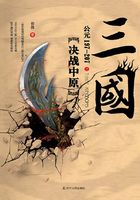PRINCIPLE 1:
Begin with praise and honest appreciation.
Charles Schwab was passing through one of his steel mills oneday at noon when he came across some of his employees smoking.
Immediately above their heads was a sign that said “No Smoking.”
Did Schwab point to the sign and say, “Can’t you read?” Oh, nonot Schwab. He walked over to the men, handed each one a cigar,and said, “I’ll appreciate it, boys, if you will smoke these on theoutside.” They knew that he knew that they had broken a rule—and they admired him because he said nothing about it and gavethem a little present and made them feel important. Couldn’t keepfrom loving a man like that, could you?
John Wanamaker used the same technique. Wanamaker usedto make a tour of his great store in Philadelphia every day. Oncehe saw a customer waiting at a counter. No one was paying theslightest attention to her. The salespeople? Oh, they were in ahuddle at the far end of the counter laughing and talking amongthemselves. Wanamaker didn’t say a word. Quietly slipping behindthe counter, he waited on the woman himself and then handed thepurchase to the salespeople to be wrapped as he went on his way.
Public officials are often criticized for not being accessible totheir constituents. They are busy people, and the fault sometimeslies in overprotective assistants who don’t want to overburdentheir bosses with too many visitors.
Carl Langford, who has been mayor of Orlando, Florida, thehome of Disney World, for many years, frequently admonishedhis staff to allow people to see him, clamed he had an “open·141 ·
door” policy; yet the citizens of his community were blocked bysecretaries and administrators when they called.
Finally the mayor found the solution. He removed the doorfrom his office! His aides got the message, and the mayor hashad a truly open administration since the day his door wassymbolically thrown away.
Simply changing one three-letter word can often spell thedifference between failure and success in changing peoplewithout giving offense or arousing resentment.
Many people begin their criticism with sincere praise followedby the word “but” and ending with a critical statement. Forexample, in trying to change a child’s careless attitude towardstudies, we might say, “We’re really proud of you, Johnnie, forraising your grades this term. But if you had worked harder onyour algebra, the results would have been better.”
In this case, Johnnie might feel encouraged until he heard theword “but.” He might then question the sincerity of the originalpraise. To him, the praise seemed only to be a contrived leadinto a critical inference of failure. Credibility would be strained,and we probably would not achieve our objectives of changingJohnnie’s attitude toward his studies.
This could be easily overcome by changing the word “but” to“and.” “We’re really proud of you, Johnnie, for raiseing your gradesthis term, and by continuing the same conscientious efforts nextterm, your algebra grade can be up with all the others.”
Now, Johnnie would accept the praise because there was nofollow-up of an inference of failure. We have called his attentionto the behavior we wished to change indirectly and the chancesare he will try to live up to our expectations.
Calling attention to one’s mistakes indirectly works wonderswith sensitive people who may resent bitterly any direct criticism.
Marge Jacob of Woonsocket, Rhode Island, told one of our classes how she convinced some sloppy construction workers to clean upafter themselves when they were building additions to her house.
For the first few days of the work, when Mrs. Jacob returnedfrom her job, she noticed that the yard was strewn with the cutends of lumber. She didn’t want to antagonize the builders, becausethey did excellent work. So after the workers had gone home, sheand her children picked up and neatly piled all the lumber debris ina corner. The following morning she called the foreman to one sideand said, “I’m really pleased with the way the front lawn was leftlast night; it is nice and clean and does not offend the neighbors.”
From that day forward the workers picked up and piled the debristo one side, and the foreman came in each day seeking approval ofthe condition the lawn was left in after a day’s work.
One of the major areas of controversy between members ofthe army reserves and their regular army trainers is haircuts. Thereservists consider themselves civilians (which they are most ofthe time) and resent having to cut their hair short.
Master Sergeant Harley Kaiser addressed himself to this problemwhen he was working with a group of reserve noncommissionedofficers. As an old-time regular-army master sergeant, he mighthave been expected to yell at his troops and threaten them.
Instead he chose to make his point indirectly.
“Gentlemen,” he started, “you are leaders. You will be mosteffective when you lead by example. You must be the examplefor your men to follow. You know what the army regulations sayabout haircuts. I am going to get my hair cut today, although it isstill much shorter than some of yours. You look at yourself in themirror, and if you feel you need a haircut to be a good example,we’ll arrange time for you to visit the post barbership.”















